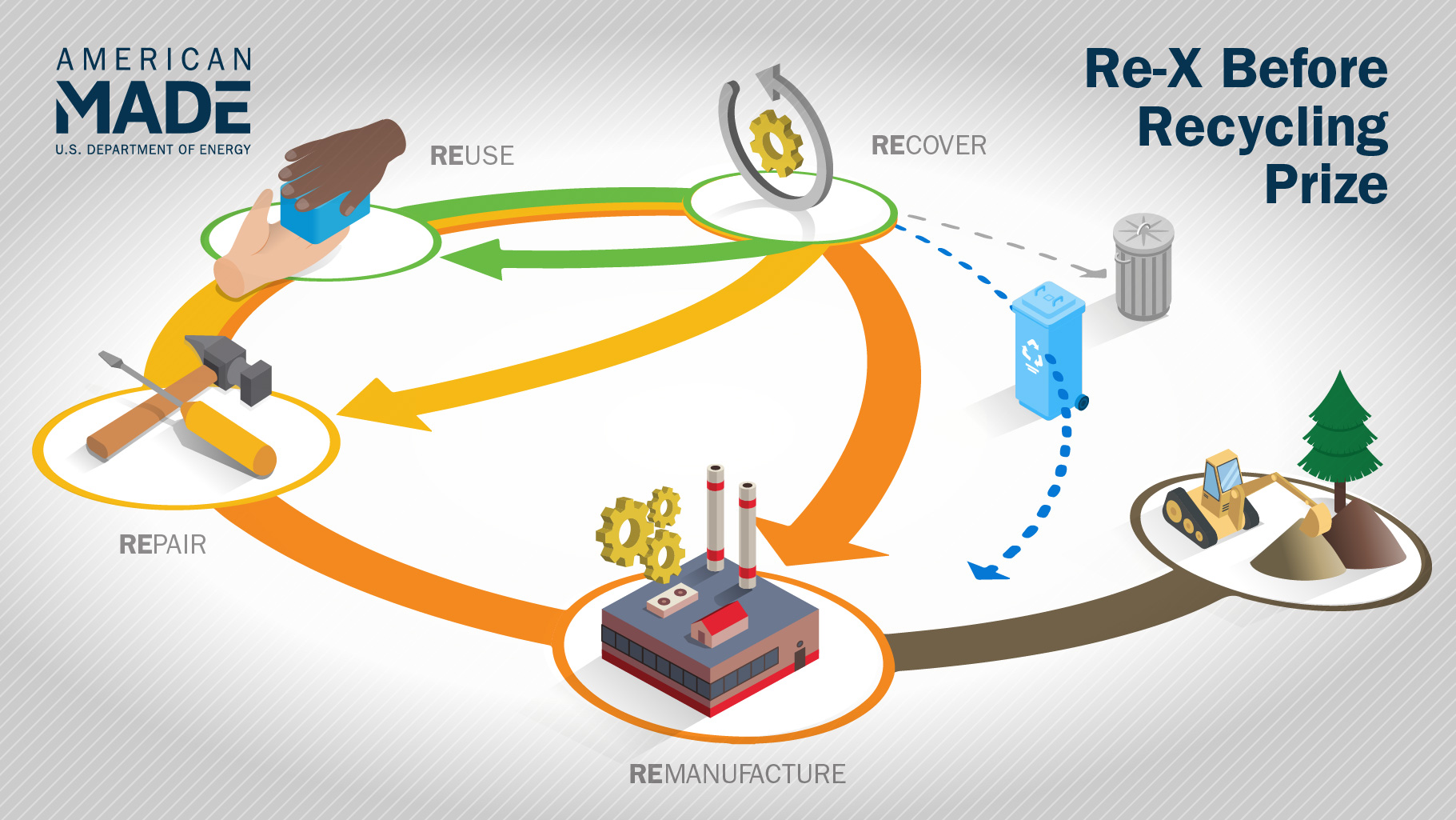RIT-led team wins $50K to help NY companies build a circular economy piloted by Tribal Nations
In June 2024, a collaboration—Gen7—led by Rochester Institute of Technology (RIT) was awarded $50,000 by the U.S Department of Energy (DOE) as a first-round winner of the Re-X Before Recycling Prize. Gen7 aims to create economic opportunities for American Indian-owned enterprises across the United States by building a circular economy business model and supply chain for remanufactured office furniture.
The Gen7 team is made up of RIT’s Center of Excellence in Advanced and Sustainable Manufacturing (COE-ASM), Davies Office, One Boat Collective, and Seneca Holdings LLC. It was among the 20 teams that were selected by DOE during the first phase of the prize.
The Re-X Before Recycling Prize
The Re-X Before Recycling Prize will award up to $5.6 million in total federal funding prizes and technical assistance from DOE national laboratories. The prizes are designed to stimulate innovation and private investment in circular economy approaches that can transform waste streams into diverse, integrated circular supply networks and contribute to a robust, environmentally sustainable economy.
By encouraging innovation, the competition seeks to unlock new or expanded supply chains that can reintegrate end-of-use products into the economy via re-use, repair, refurbishment, remanufacturing or repurposing—a set of circular economy practices known as “Re-X.”
Office furniture—an overlooked waste stream
Gen7 aims to implement and expand a Re-X supply chain for office furniture. That’s because old office furniture is a major waste stream that is often overlooked but that can be successfully addressed using remanufacturing, a proven Re-X method.
“This award from DOE will serve as the catalyst to transform our concept of a circular office furniture supply chain into reality," said Mark Walluk, the technical program manager for COE-ASM who is leading the project. "And the project team has already begun the first steps toward realizing this vision.”
The Gen7 team aims to expand the existing U.S. remanufactured office furniture supply chain using a workspace as a service model (WSaaS) enabled by manufacturing enterprise system (MES) and enterprise resource planning (ERP) tools embedded with artificial intelligence (AI). A hub-and-spoke network will be established within locations operated by Seneca Holdings that would eventually scaled to Tribal Nations across the United States.
“EPA reports show that an estimated 9.7 million tons of furniture ends up in landfills every year and office furniture is a major contributor to this waste stream,” Walluk explained.
Gen7’s innovative solution aims to cut over 730,000 metric tons of CO2e emissions, divert 286,000 tons of material from landfills, create 8,000 jobs, and expand economic growth in the underserved Native American community, all within a ten-year timeframe.
Ready for Phase 2
Phase 2 calls teams to significantly advance their ideas into the planning stage. Up to ten winning teams will each receive $150,000 in cash and up to $100,000 in technical assistance for analysis from a national laboratory that could inform enhancements to increase the proposed solution’s impacts and benefits.
To win Phase 2, teams must achieve the following:
- Deepen their insights by leveraging national laboratory expert analysis, consultation, and other resources to deepen insight into environmental, economic, and community benefits of the innovation, plan, and Re-X supply chain.
- Refine their plans based on progress made and insights gained to advance their innovations towards implementation in a supply chain.
- Cultivate a network of mentors and partners to help advance the proposed innovation and better understand how to increase potential positive impacts on communities.
“For us sustainability is all tied to generational impact," says Stan Fleming, the president of Seneca Holdings LLC. "With Seneca Nation, we talk about the seventh generation; it’s really our children of our children, of our children, of our children…all the way down.”
- Watch a video about the Gen7 project
- Learn more about the Re-X Before Recycling Prize and the Phase 1 winners
Furniture Re-X: Gen7 Re-X Before Recycling Solution (Phase 1)
Old office furniture is a major waste stream that's often overlooked. But it’s also a problem that’s easy to fix using remanufacturing, a proven Re-X method. Gen7 aims to implement and expand a Re-X supply chain for office furniture.







